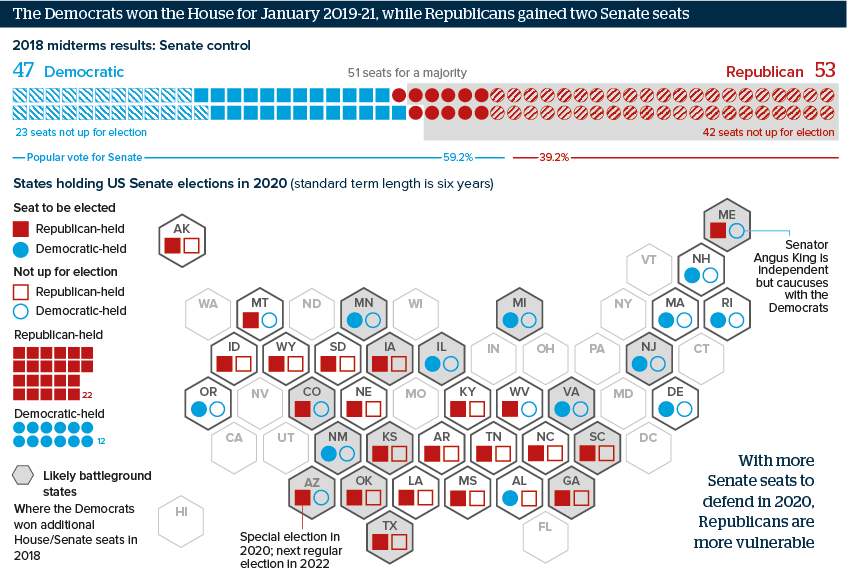More Senate seats likely to change hands in 2020
The end of the 2018 elections heralds -- already -- the start of the 2020 election round, and it will be hard-fought
Source: Media reports; Oxford Analytica
Outlook
The November 6, 2018 midterm elections gave Democrats control of the House of Representatives (and 234 of its seats) and Republicans 53 Senate seats, a net gain of two. The battle for the White House and Congress in 2020 is now beginning.
President Donald Trump will seek re-election and all 435 House seats will be elected: Democrats will want to build on their 2018 gains. Both parties face a more wide-open set of Senate races than this year: Republicans will defend 22 Senate seats; the Democrats twelve. Both stand to make greater gains, or losses; 2019-20 performance will be key.
Impacts
- In 2019-21, the Republican-led Senate will confirm more conservative judges and new Trump cabinet picks.
- The Democratic-controlled House will scrutinise the Trump administration, initiating myriad investigations.
- Differing policy priorities will likely see few major laws passed by 2021, but the parties will make deals, trying to win new voters.
- Republican Senate candidates running in states where Democrats made 2018 gains could face tougher races in 2020.
- If Democrats win Congress in 2020 and Trump wins re-election, he will find his domestic and maybe foreign policy freedom curtailed.
See also
- US Supreme Court-packing unlikely - Mar 25, 2019
- US Democratic socialist ideas’ influence to rise - Jan 3, 2019
- Kyl’s US Senate move could help Arizona’s McSally - Dec 17, 2018
- US Republicans face post-election soul search - Dec 13, 2018
- US Democrats’ gains could see wide labour reform - Dec 7, 2018
- Prospects for US politics for 2019 - Nov 13, 2018
- More graphic analysis
